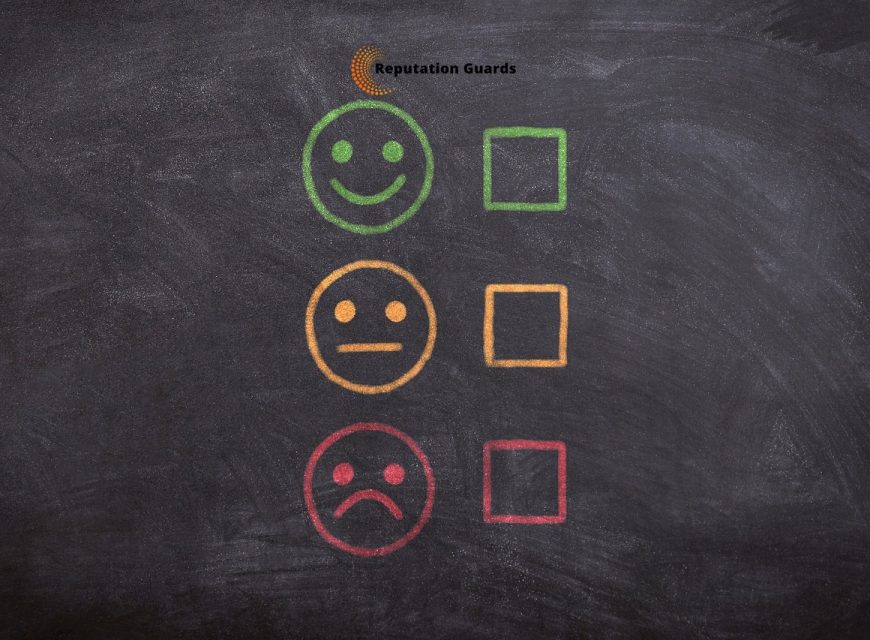
In the digital age, online reviews wield significant influence over consumer decisions. For small businesses, negative reviews can feel like a setback, but they also present an opportunity for growth and improvement. How a business responds to criticism can greatly impact its reputation and customer relations. In this blog, we’ll explore best practices for small businesses in handling negative reviews, turning them into opportunities for positive engagement and enhancement of their brand image.
Monitor and Acknowledge Reviews Promptly
The first step in effectively managing negative reviews is to monitor them diligently across various platforms. Whether it’s Google, Yelp, or social media, staying informed allows for timely responses. Acknowledge every review, positive or negative, swiftly and courteously. Customers appreciate acknowledgment, and it demonstrates your commitment to their satisfaction. Responding promptly also prevents issues from escalating and shows potential customers that you value feedback and are proactive in addressing concerns.
It’s essential to take a personal approach in responses, addressing the reviewer by name if possible and expressing genuine concern for their experience. Avoid generic, automated responses, as they can come across as insincere and further aggravate the situation. Instead, offer a personalized apology and assure the customer that their feedback will be taken seriously. This not only shows empathy but also lays the groundwork for resolving the issue amicably.
Maintain Professionalism and Transparency
When crafting responses to negative reviews, maintaining professionalism is paramount. Regardless of the criticism’s validity or tone, respond calmly and respectfully. Avoid engaging in arguments or becoming defensive, as this can reflect poorly on your business. Instead, focus on addressing the customer’s concerns constructively and offering solutions.
Transparency is key in building trust with your audience. Be honest about any shortcomings or mistakes on your part and outline steps you’re taking to rectify the situation. Whether it’s offering a refund, providing additional training to staff, or implementing changes to your products or services, transparency demonstrates accountability and a commitment to improvement. Customers appreciate businesses that take responsibility for their actions and actively work towards bettering themselves.
Offer Solutions and Compensate When Appropriate
In responding to negative reviews, it’s crucial to offer practical solutions to rectify the customer’s dissatisfaction. Whether it’s resolving a specific issue, providing a replacement or refund, or offering a discount on future purchases, demonstrating a willingness to make amends can turn a negative experience into a positive one.
When deciding on compensation, consider the severity of the complaint and the potential impact on the customer’s experience. While it’s essential to address grievances promptly, be cautious not to overcompensate, as this can set unrealistic expectations and undermine your business’s profitability. Strive for a balance between appeasing the customer and protecting your bottom line.
Encourage Positive Reviews and Dilute Negativity
An effective strategy for mitigating the impact of negative reviews is to actively encourage positive feedback from satisfied customers. Prompt happy customers to leave reviews on platforms of their choice, helping to dilute the negativity of unfavorable comments.
Consider implementing incentives such as discounts or loyalty rewards for customers who provide feedback, creating a win-win scenario that fosters customer engagement while bolstering your online reputation. By generating a steady stream of positive reviews, you can counterbalance the occasional negative feedback and showcase the overall satisfaction of your clientele.
Learn and Improve from Feedback
Negative reviews, while disheartening, offer valuable insights into areas where your business can improve. Embrace criticism as an opportunity for growth rather than a setback. Analyze recurring issues mentioned in reviews and take proactive measures to address them.
Consider conducting surveys or soliciting feedback directly from customers to gain a deeper understanding of their experiences and preferences. Use this information to refine your products, services, and customer interactions continually. Demonstrating a commitment to listening to your customers and acting on their feedback instills confidence in your brand and fosters loyalty over time.
Monitor and Adapt Your Approach
Monitoring the effectiveness of your responses to negative reviews is crucial for refining your approach over time. Keep track of how customers react to your resolutions and adjust your strategies accordingly. If certain solutions consistently receive positive feedback, incorporate them into your standard procedures. Conversely, if certain responses seem ineffective or exacerbate issues, reassess and revise your approach.
Additionally, stay informed about changes in consumer preferences, industry trends, and best practices for online reputation management. The digital landscape is constantly evolving, and what works today may not be as effective tomorrow. By staying proactive and adaptable, small businesses can stay ahead of the curve and maintain a positive online reputation despite the occasional negative review. Remember, the key is not only to respond to criticism but also to learn and evolve from it, continually striving to provide the best possible experience for your customers.
In the realm of small business, negative reviews are an inevitable part of the journey. However, by approaching them with professionalism, transparency, and a commitment to customer satisfaction, businesses can turn criticism into an opportunity for improvement and relationship-building. By acknowledging feedback promptly, offering practical solutions, and actively seeking to learn and improve, small businesses can navigate the challenges of negative reviews with resilience and emerge stronger than before. Remember, every review, whether positive or negative, is an opportunity to showcase your dedication to customer service and continuous improvement.
